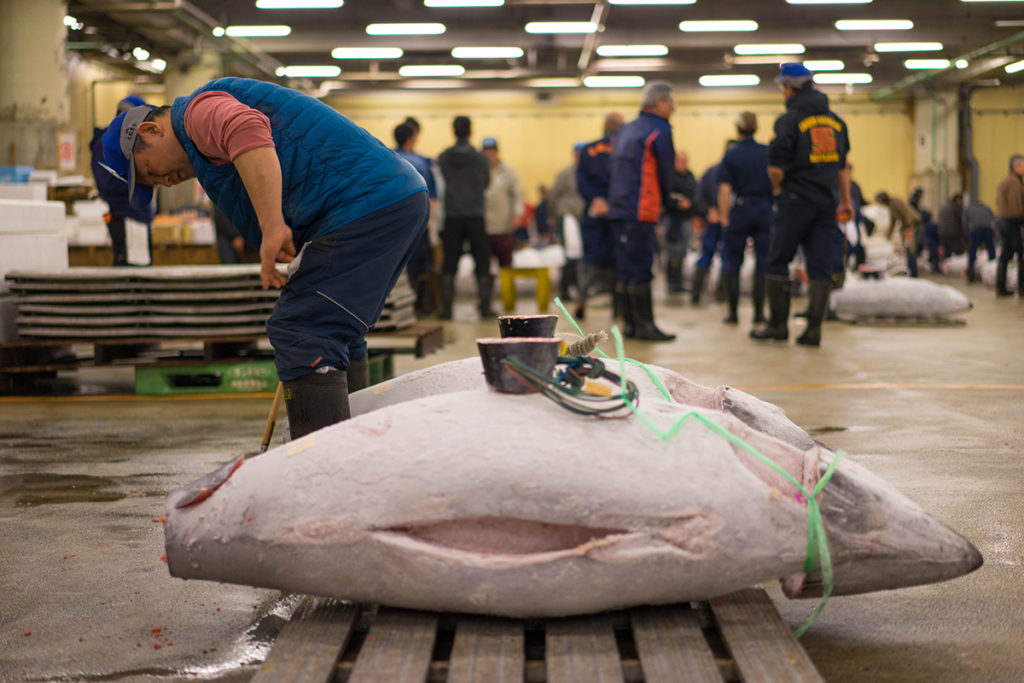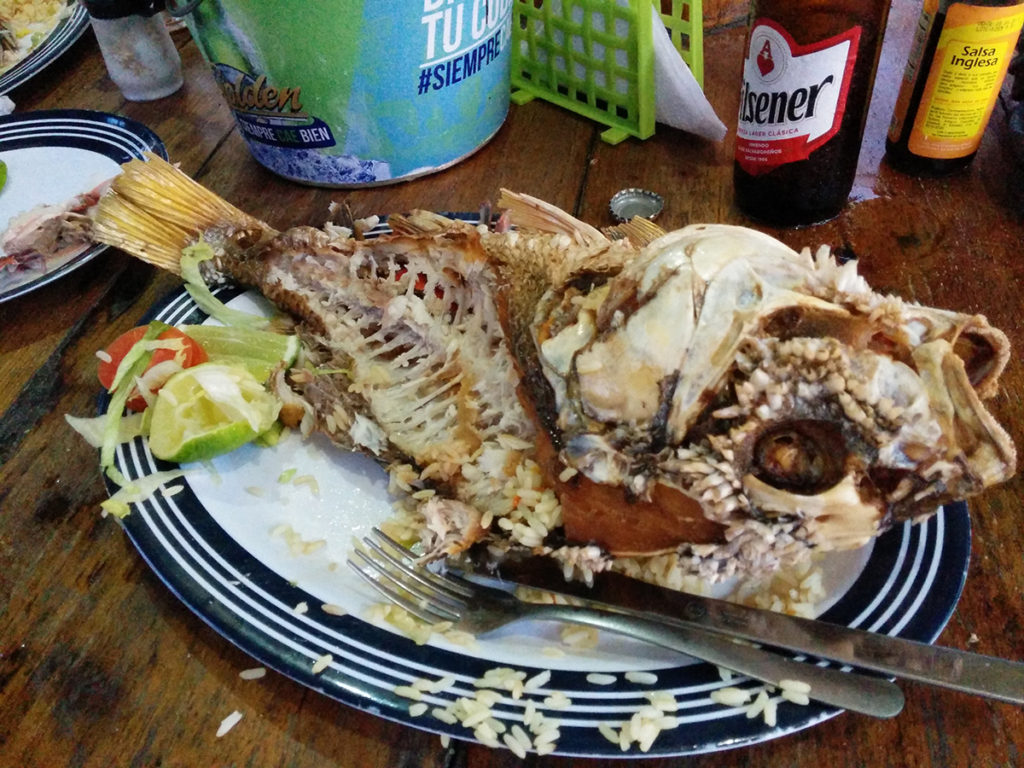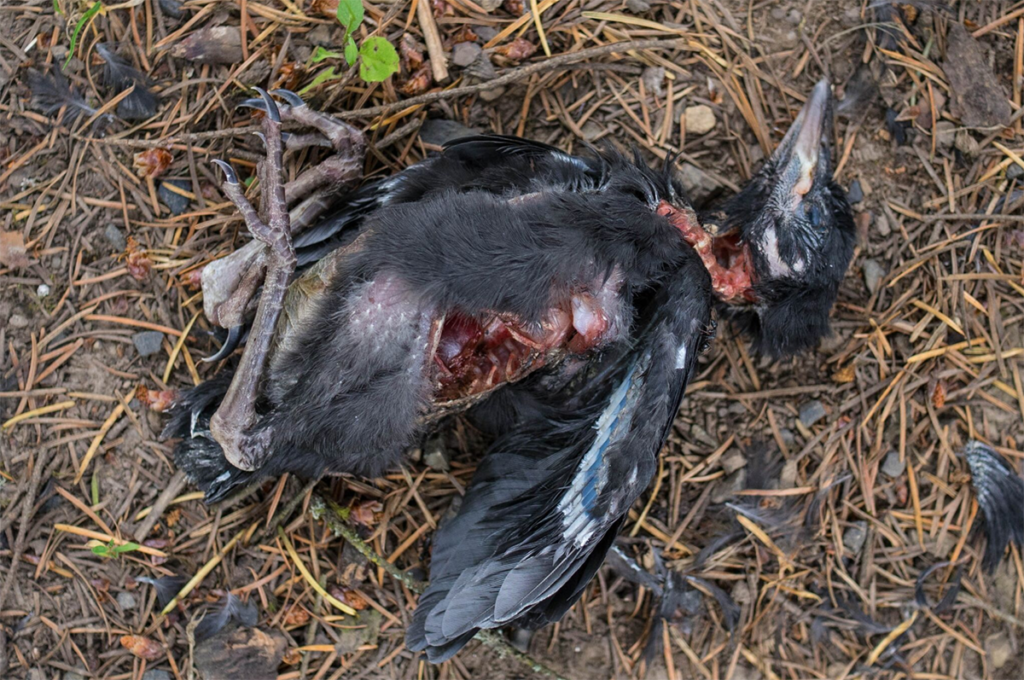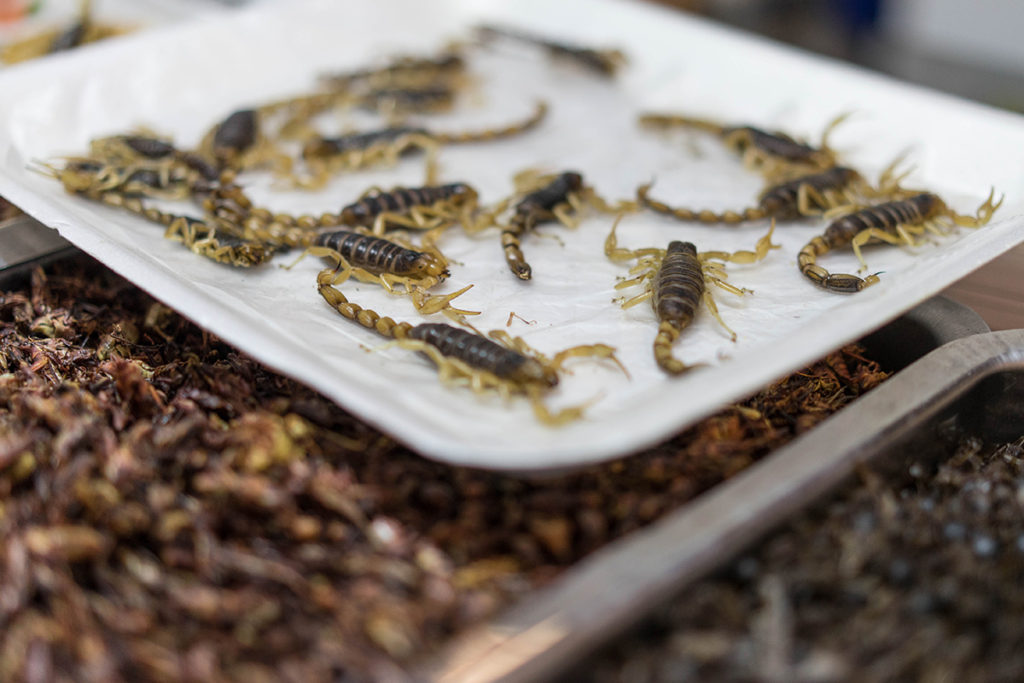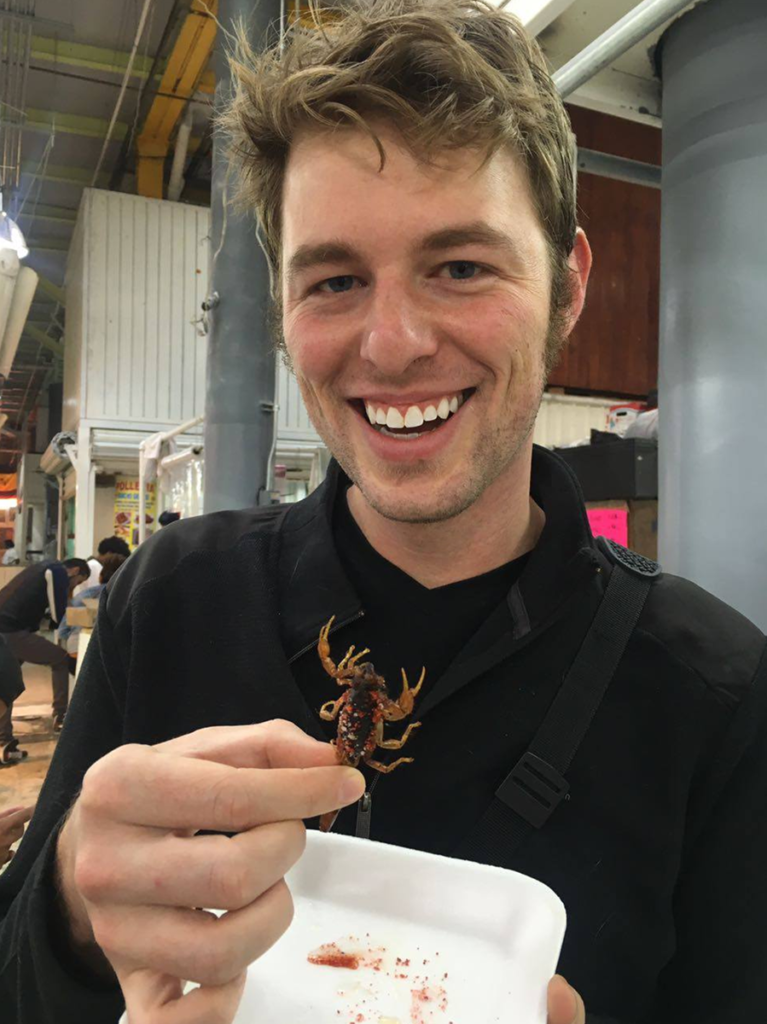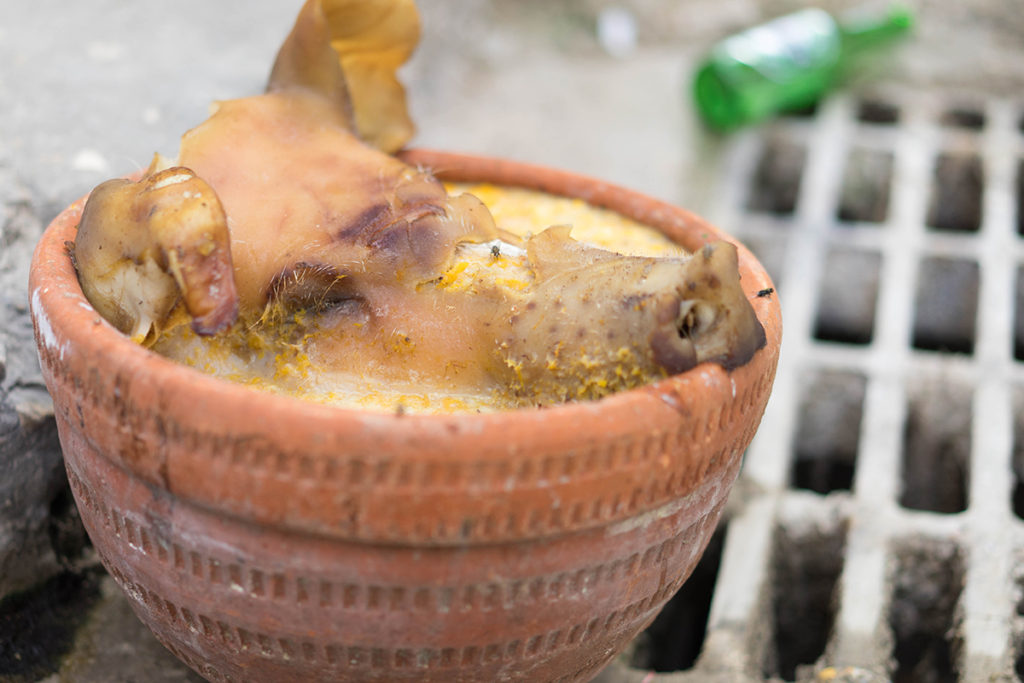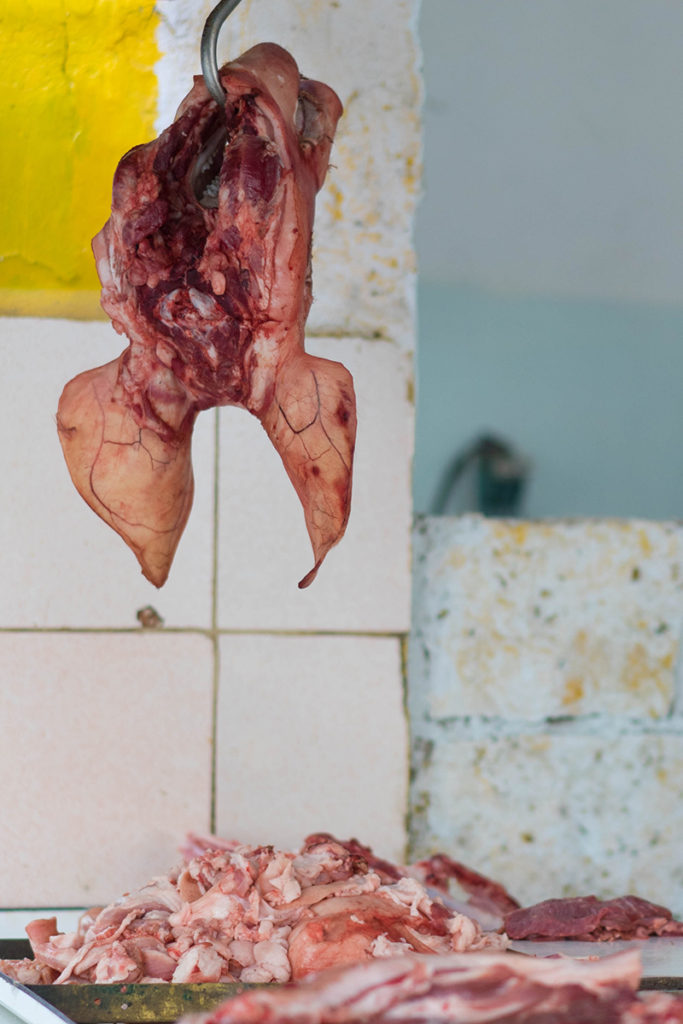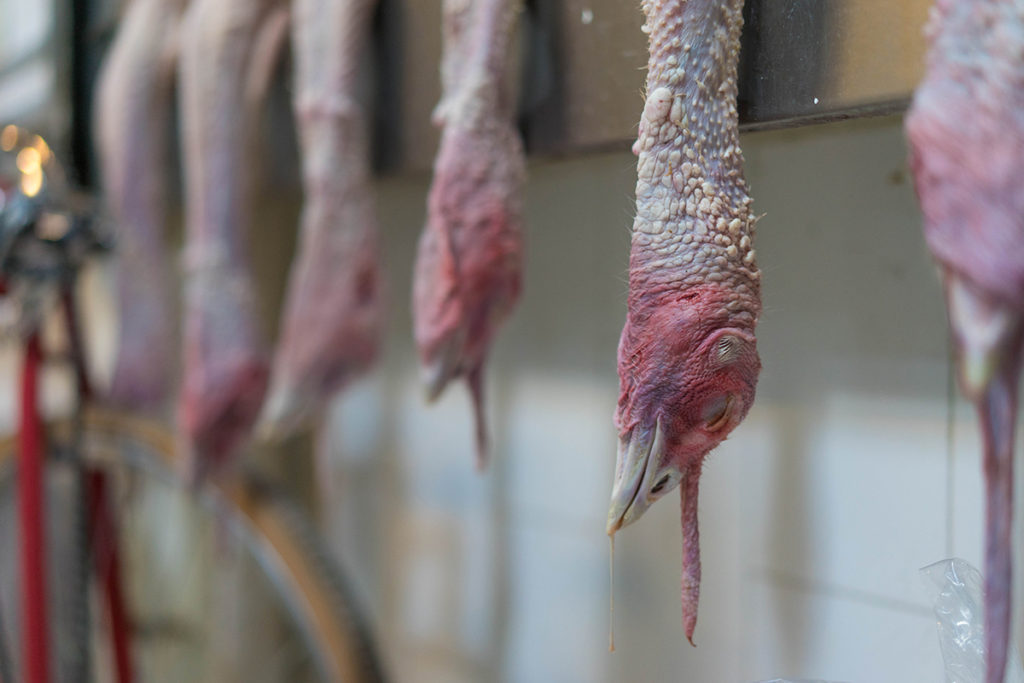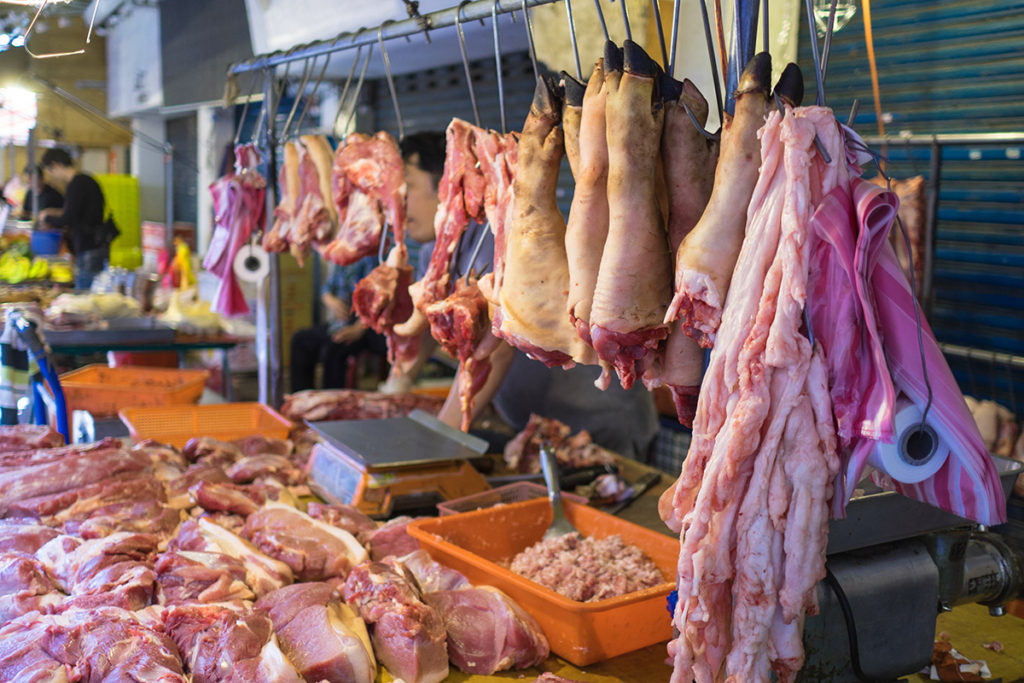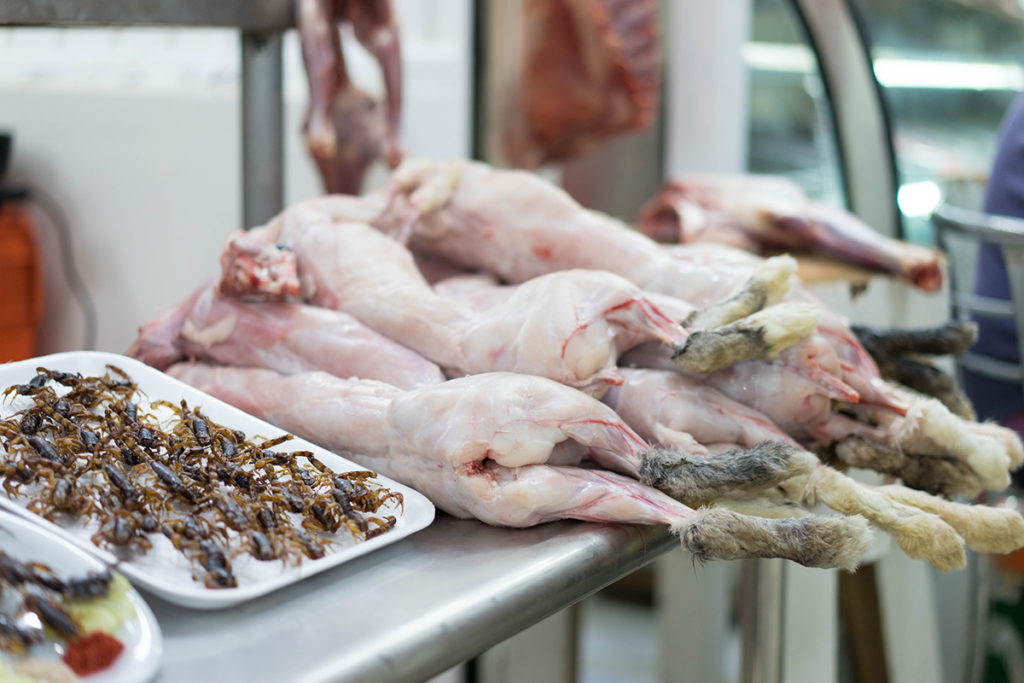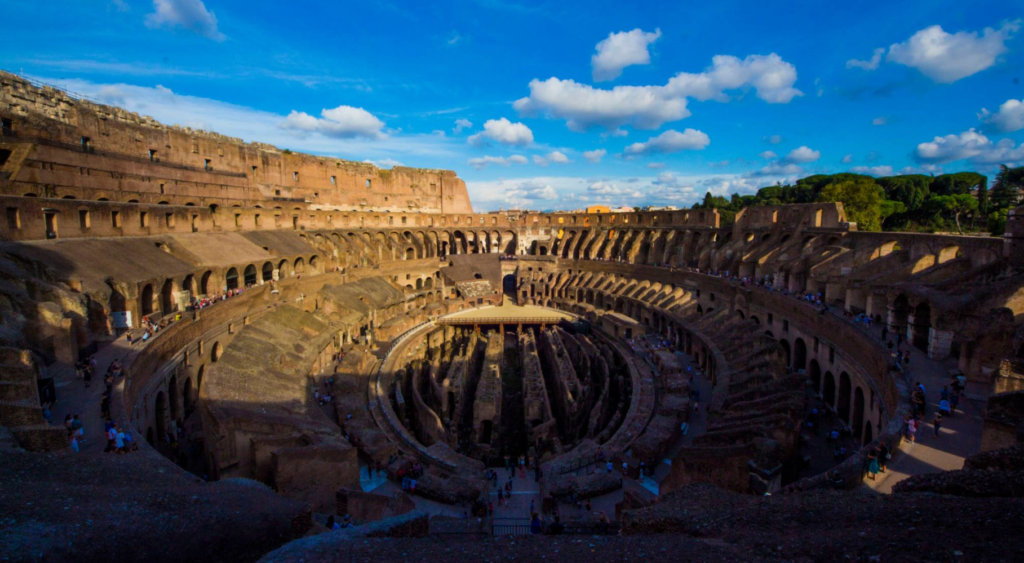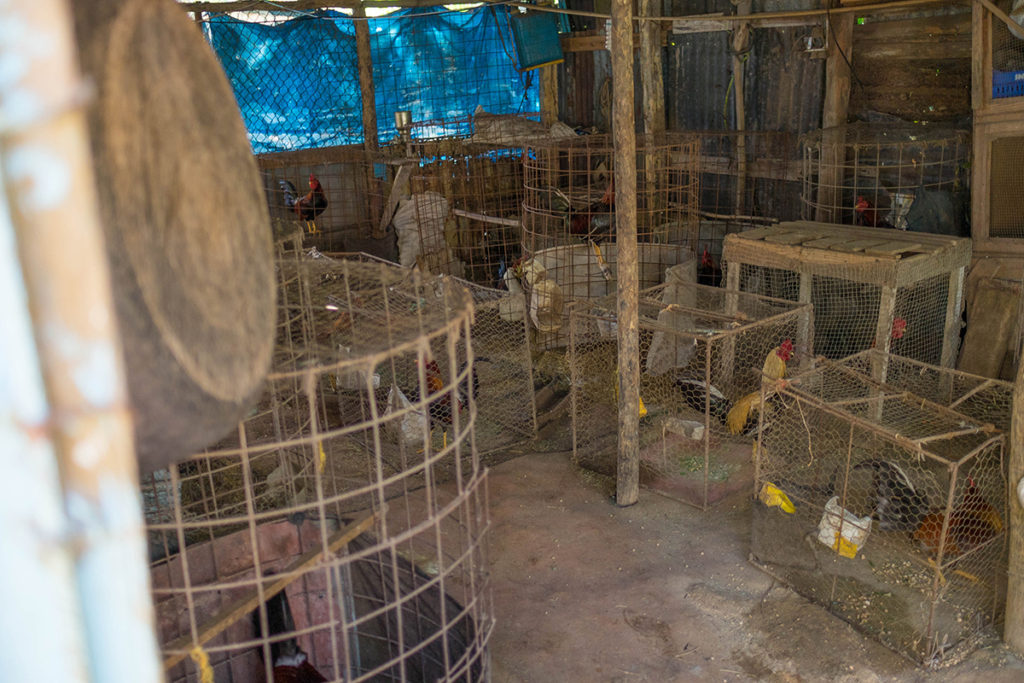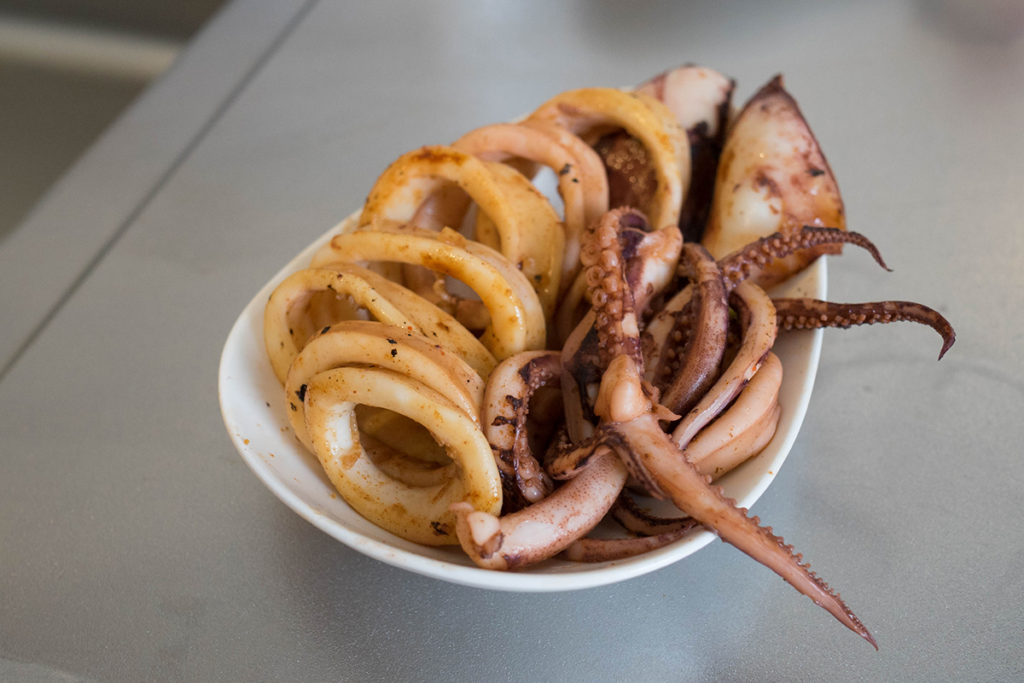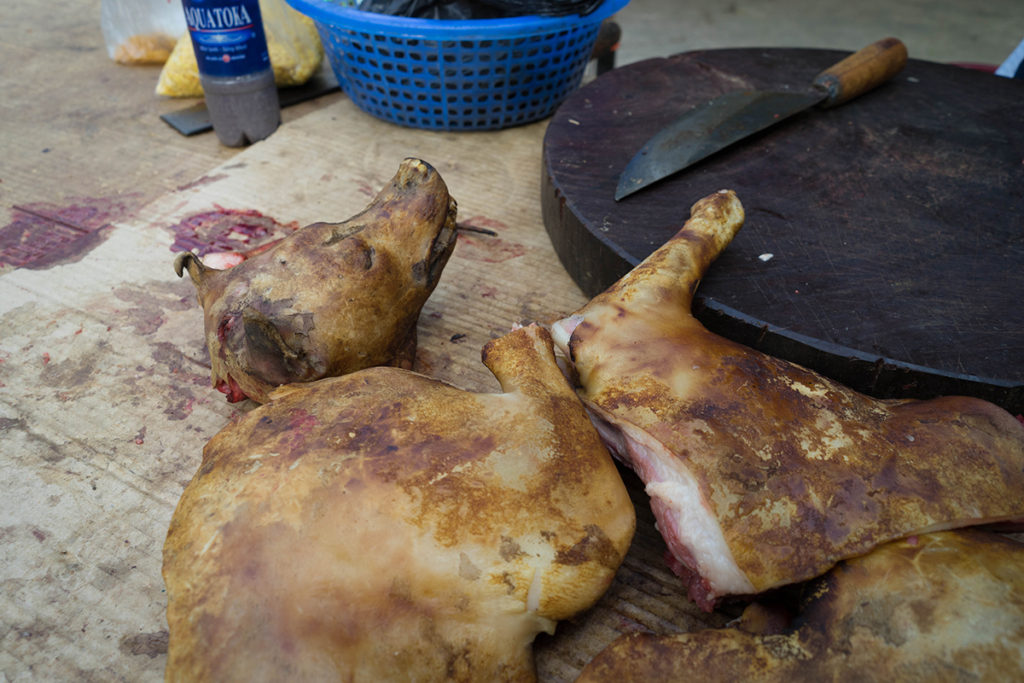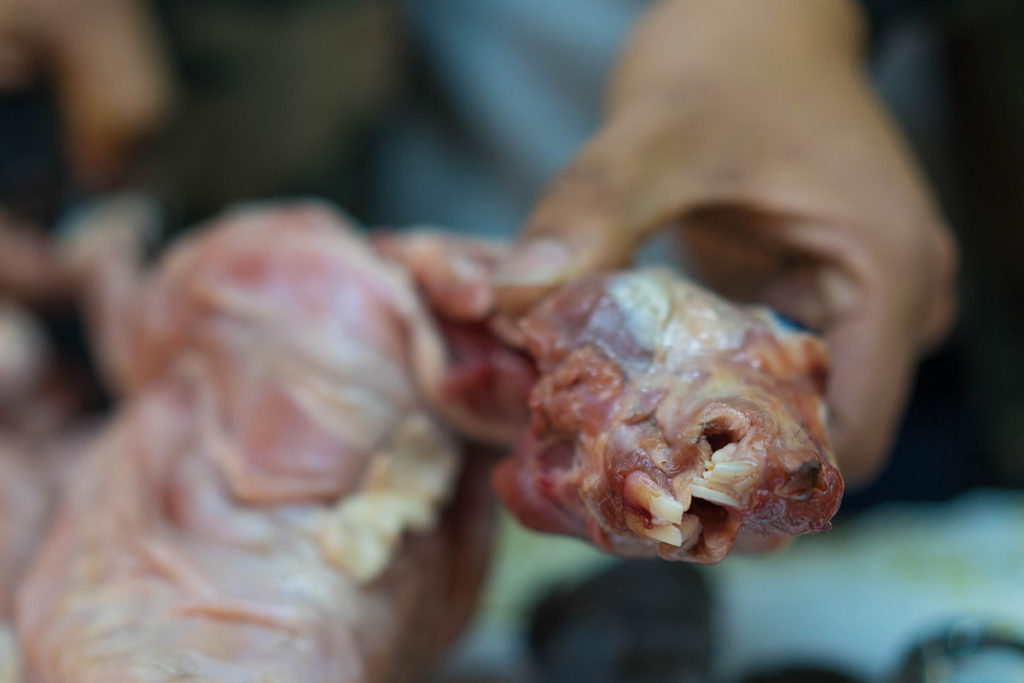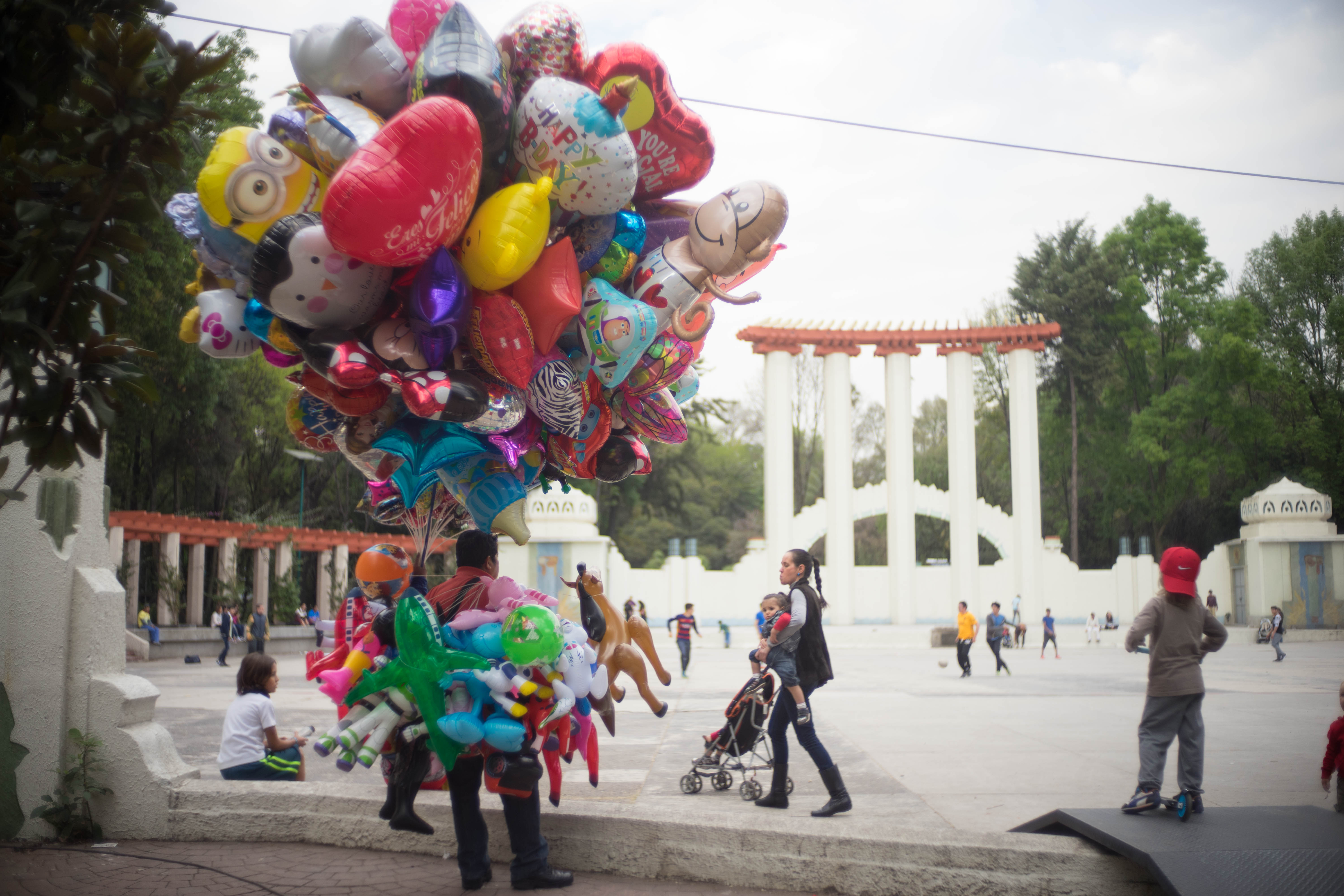The impetus for these thoughts came on a rather haphazardly-arranged day-tour I took with a friend in northern Vietnam. The last planned activity for the day was a short bike ride through the countryside around the little town we were in before filing onto the bus for the journey back to Hanoi.
“Did you see it?” she asked as we carefully pulled our rusty brake-less bikes into a chaotic parking lot filled with tour buses. “No, see what?” I love my friend – I’m not sure that she understands me, but as I jumped back onto my bike, camera in tow, I thought about how accepting she is of my antics anyways.
Some years back, a friend was working on a story and I offered to develop a character for him. To be honest, I can’t actually remember what the story was about, but the suspension of man between the world of animals and the world of the gods was on my mind. I’ve always had a curiosity about the Christian creation myth, and at the advice of another friend, who later became a scientist and staunch environmentalist, I’d recently read Daniel Quinn’s Ishmael (though I’m probably due for another reading soon).
The monologue I would write – quoted in its entirety at the bottom – explored what I still consider to be one of the fundamental conflicts of being human: if we are neither god nor animal, how can we possibly orient ourselves? The answer, I feel, is that we don’t orient ourselves very well.
If this article makes you feel a sense of disgust, there is a high likelihood that you – like me – come from a modern, western urban or suburban place. If you already feel disgusted, you’re in for a treat – we’re only at the beginning of this reflection and we have a lot deeper to go.
Nature
Contemporary psychologists like Jonathan Haight argue that a sense of disgust is incredibly important from an evolutionary perceptive. The logic is simple enough – the things we’re disgusted by tend to be dangerous.
Not dangerous in the immediate, violent sense. We aren’t disgusted by lions, we fear those. Disgust is reserved for things that make us feel sick – blood, feces, rotting flesh, humans infected with boils, vomit. As we’ve developed a theory of germs, a post-hoc rationalization tells us that we avoid these things because they are unhealthy. Notably, though, the systems that respond to disgusting stimuli ‘ mostly our gag reflex driven by our sense of smell – wouldn’t understand the idea of ‘health’ in such rational terms. When a rat takes a small nibble of an unknown food, but hesitates before continuing, he isn’t contemplating the food’s cleanliness – he is waiting to see if it makes him vomit.
Haight would go on to mention that a good deal of early moral ideas are related to cleanliness and almost all societies have rituals around how to treat food, dead bodies, and menstruation, as well as customs around how and where to relieve oneself.
Empathy
Though disgust still evokes a visceral response, it seems that the stimuli that triggers the feeling has evolved. In humanity’s perpetual quest to refine and redefine itself, those of us from certain societies have developed a more acute sense of disgust than others. In few places is this more apparent than our relationship with animals.
Animals are fucking great.
As we contemplate the abstractions of the universe around us, it is easy to get lost. Animals give us a first step: they’re like us… kind of. They seem to have similar mannerisms – they can be protective, angry, loving. They share a lot of our own struggles – not only the struggles for food water and shelter, but also for territory, community, and genetic continuity. By contrast, earth, wind, and fire, or trees, rivers and rocks, all seem largely apathetic about their own procreation.
This similarity, though, it a source of endless struggle for us. The ways in which we are similar to and different from animals – as well as our relationship to them – has long been a debate in the religious world and continues to be a bedrock of our understanding in the modern secular world.
My speculation is that the level of visceral delight and disgust that we feel surrounding the topic of animals is an indicator that this has been one of humanity’s primary concerns for a very long time.
Think about a cute kitten on the internet. Feel that sensation? That’s your brain’s emotion center at work, not your more rational pre-frontal cortex. Now close your eyes and picture yourself eating the kitten.
Projection
In christian mythology, the very first book calls on the very first man to name the animals. This distinction is meaningful – it elevates man as the greatest animal on the principle that he uses language to organize the world. It is a call to leave behind simple instinct and develop a way to communicate based on words. Unlike other books in which God bestows wisdom upon man, in this story, God asks man to create order himself. Most will point out that the Christian creation myth is far from unique in this aspect, and I don’t think it is a stretch to understand why.
It is through creating order from chaos that mankind has found its calling and through it we feel our greatest satisfaction as well as our greatest insecurity and propensity for destruction. I think it is notable that God’s task for Adam was generative and not exploratory. Language is not a puzzle that mankind has unlocked – it is a projection that man has created.
This projection creates a friction. If animals are like us, but also not like us, how are we supposed to treat them? They’re harder to group than humans – some of them like to be around us, others seem quite apathetic, and many are violent against us.
This mystery is an obsession. With such an intense addiction to understanding the world, we simply can’t help but use the most obvious tools at our disposal to evoke and play with not only rationale understanding, but the full canon of human emotion.
The Full Canon of Human Emotion
Last year I met a friend for drinks at a bar in Mexico City’s downtown Zocalo district. Mexico City is a haven for stimulatory overload and this particular crappy bar had all the trappings of a perfect environment: a hollowed-out Spanish Era building of questionable structural integrity at the end of a long dark hallway with a dirty floor, haphazardly arranged plastic furniture, and an endless supply of chicharones (fried pig skin) and spicy Valentina sauce. If you get overheated, fret not, the beer is cheap, abundant, and cold. Before long, a group at the next table decided that the evening would be incomplete without a jarocho jam session.
Notable was the bar’s kitschy Bullfighter theme. Interspersed between fading murals of valiant matadors cleverly outsmarting their stronger opponents were glass cases featuring maniquins dressed in authentic costumes of the now controversial performers.
The spirited contest of animal vs animal and animal vs man has long been a staple of human understanding. Though our societies haven’t been threatened by large, violent animals for hundreds of years (these days, it mosquitoes that constitute our biggest threat), we can’t help but obsess over the life and death of our closest cosmic relations.
This is because we have a metaphorical relationship with animals as well. They make up our stories. Foxes are sly, snakes are evil, Rosters are lucky and represent the family. While the Roman Colosseum has long been put to rest, the Vietnamese imperial court staged Elephant vs Tiger fights until 1904. To this day dog fights, cock fights, and even bug fights are common ways to pass the time in many places.
The bar’s decor may have been a reflection of the changing spirit of the country – over the next week I would learn that none of my Mexican friends, including the one with which I spent that evening, was interested in going to a bullfight with me. Maybe the old-fashioned spectacle was less interesting to them without the morbid curiosity that often accompanies being foreign.
Or perhaps taste has simply evolved.
Us and Them
Ha Long bay is considered to be one of the top ten most beautiful places on earth. For a steal of a price, you can spend the night on what 15 years ago would have been considered a luxury cruise ship after it carts you around to the caves, kayaking, and swimming spots of the submerged Mountain range. On our ship, Squid Fishing was mentioned as an activity and a friend I was with hurriedly pulled me downstairs so we could give it a try.
Squid fishing is not an exciting sport. Like the fishing I did with my relatives in Missouri growing up, it amounts to staring at the water for long periods of time waiting for something to happen. In the case of squid, the “bait” is actually a light that they suspend above the water over the side of the boat that attracts them. From there, there is a bamboo pole with a line on the end and a hook. Bob it up and down, if you’re lucky, you may snag a squid.
Along side us was one of the guys that worked on the boat, just staring out to sea bobbing his line up and down. I was lucky, within just a few minutes I snagged a pretty good sized squid and pulled him up out of the water.
I waited a minute or so as his little body squeezed and squirmed, the usual contractions that would propel her through the water worthless suspended in the air. When her contractions got weaker, I pulled her over the boat, still hooked, for the typical fishing picture.
I dropper her into the bucket, and turned to the sea, but she was still on our minds.
“One day,” I said, as it is an itch for me to always say the wrong things, particularly in light of earlier conversations about the unique intelligence squids have, “we will consider this genocide.”
My friend jumped up, getting a glass and, after filling it with water, plopped our little squid in it.
“Do you think she’ll survive?”
We watched for a moment, but the little squid didn’t move.
Beside us, out neighbor pulled a desperately squirming squid off of his hook, dropped it on the deck to gasp its final, futile attempts at breath, and turned back to the sea, dropping his hook into the water without a second thought.
We decided to go upstairs.
The Bahnar tribe’s biggest ritual every year is the buffalo sacrifice. In conjunction with a bunch of communal activities over two days, they decorate the buffalo and tie it to a giant pole. When the time comes, the young men of the tribe take turns jabbing it with spears as it struggles in vain to free itself from the pole. After a few minutes, it succumbs, keeling over to die – having made their offering to the gods, the tribe feasts on its flesh.
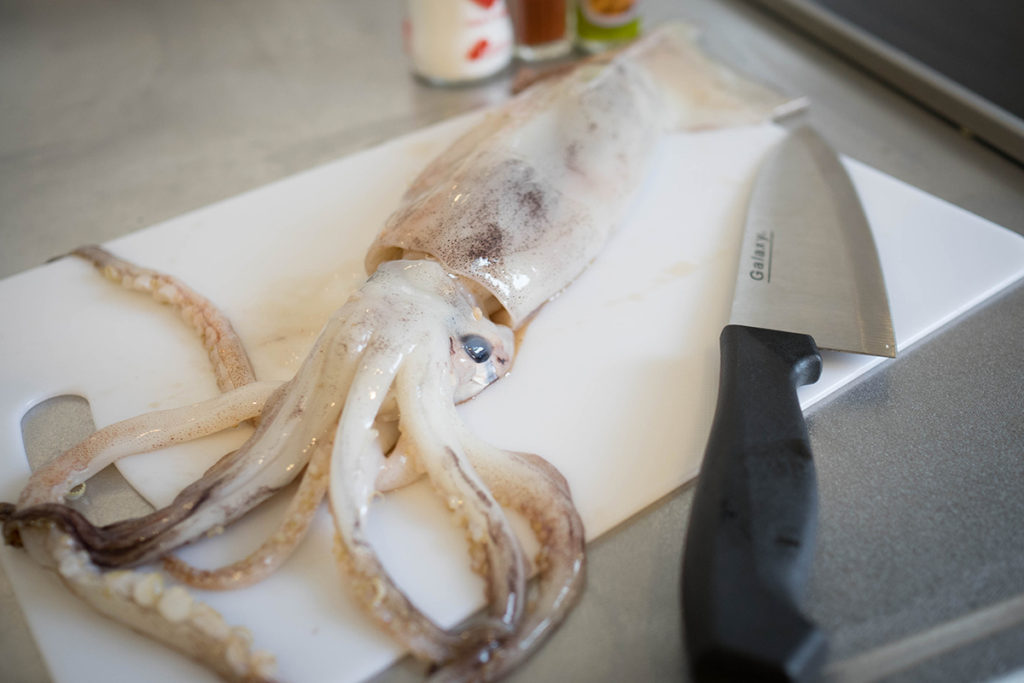
It was, after all, a first.
I haven’t seen the ritual in person, but a buffalo pole is one of the Ethnology museum’s most prized possessions – the first thing you see in the middle of the atrium when you walk in the door. Upstairs, you can watch a video of the ceremony, including the entire sacrifice.
I think humans may always have the need to watch something die. It isn’t about blood-lust, it isn’t psychopathy, it isn’t really pleasurable. We have to watch things die to understand both our own mortality and our place in the animal kingdom. We have to rationalize it.
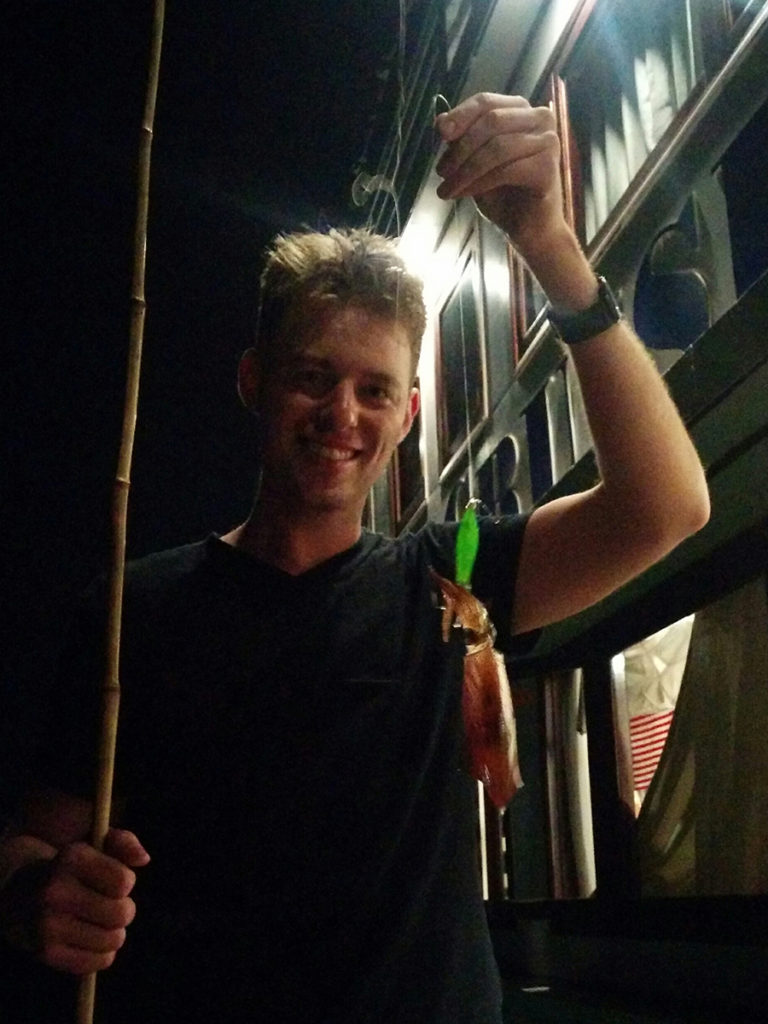
When your family is from the US midwest, this picture is a mandatory part of the fishing ritual.
Meat
When I was in high school and social media was new, there was an online group (myspace, maybe?) for people that “would totally eat a dog.” The group featured a cute puppy looking up at the camera which added to the cringe factor, and a debate ensued about whether or not eating dogs was ok.
I, of course, didn’t really understand the debate. If eating pigs, chickens, and cows was alright, how was a dog any different? I could understand vegetarianism, and I could understand carnivores, but I really didn’t understand why eating one animal was alright in people’s eyes while another was borderline evil.
So rushing back for this picture filled me with great pride and spirit. I took it a couple of weeks ago and have been memorized by it, but for the life of me, I couldn’t figure out why. Last night, though, it dawned on me.
Dogs are loyal.
Dogs are more than animals to us. In the animal kingdom, they may just be another beast, but to humans, they are Lassie, Clifford, Old Yeller, Wishbone, and Scooby Doo. Dogs are “man’s best friend.” A “Lap dog” is a person that serves another with an inherent impotence. A “bitch” is a disrespectful slur for women or weak men. We can be “dog-tired,” or “smell like a wet dog,” or greet a friend by asking “What’s up, dog?” Some of our biggest stars are Snoop Dog and Lil’ Bowow.
It think it is more than that too. Though I doubt they make much of a distinction, I think the propensity some of us have to personify animals makes the way an animal dies more or less good. An animal that dies in a battle is valiant. One that dies for dinner is just… nothing.
Maybe that is why people struggle so much with dog meat. It doesn’t feel like eating a part of nature – it feels like eating one of our own.
“The Colonel”
I wrote this monologue some years back for a friend. He was working on a story and needed a character exploration for part of the story’s midpoint. The comic never really happened, so the monologue has just been sitting in evernote all this time. I thought I would publish it here. Why not?
(It is heavily influenced by some things I was reading at the time, Daniel Quinn’s Ishmael, Noam Chomsky’s Manufacturing Consent, and probably a touch of Hobbes)
“What’s wrong, my boy?” The old man sneered, measuring the terror in my eyes, “Does this bother you? I bet you think it’s inhumane. Inhuman, even?
You know, many think that humans are animals. That we have evolved, see, to become more compassionate. That, among the animals, only man stands as a tenant for justice and truth, for a more civil existence.
Let me tell you a story. A peaceful, innocent rabbit was grazing one day when, unbeknownst to him in the tall grass behind a fox softly crept. Now, this caught the attention of one of the gods. Alarmed at the brutality of the situation about to unfold he opined that something must be done to save this innocent creature from such a beast. What had the rabbit done to deserve this wretched fate?
So the instant before the fox pounced, the altruistic god alerted the rabbit giving him a head start. When some of the other gods took notice this they were furious. One, who was particularly vocal, argued that but for the rabbit as a meal, the fox would surely starve to death. Who was he to choose the life of the rabbit over that of the fox?
As chase ensued on earth, a great debate raged in the heavens. Were rabbits to outrun foxes, to continually outrun predators, their population would continue to grow. Not only would the foxes all starve, but the overpopulation would lay the forests barren. All manner of creatures would be left homeless and hungry. With the rabbit’s gift of life, the gods would chose death for the world that surrounds them.
And so the gods chose to compromise. Today, the rabbit would outrun the fox. Today, he would live. Tomorrow, though, he will die so that the fox can live. The gods took it upon themselves to maintain this delicate balance. In this, they defined their role: to be a god, is to decide who will live, and who will die.”
He paused briefly to let his point fester before he continued. “This story, as old as time, is coupled with another. A story, perhaps, you will be more familiar with. Do you know the story I speak of?”
“no….” I gulped.
“Yes you do, do you know what the Hebrew translation for Eva?”
“no”
“Eva means life. You see, as animals, man, or Adam, as the Semites would call him, could live in perpetual bliss among his brethren. Clever, dexterous, he possessed the instinctual ability to gather food quickly and leisure at will. It would be unfair, of course, to complain about this situation, he enjoyed a great place in the animal kingdom. Slave to the inevitable will of the gods, though, Adam knew he was no more than the fox; likewise, no more than the rabbit.
Adam was tempted by Eva. Eve. Life. And he knew that the only way to truly have life is to become a god. Many will tell you that to seek knowledge, to seek control, was the great fall of man. But it wasn’t. It was his defining moment.
To become a god is not an easy task, and yet it is the destiny of all men to seek this. With great power comes great responsibility, and the decisions of a god are heavy decisions indeed.
Your friend, the Colonel, was no stranger to these decisions. His past is a dark one indeed. Have you ever about those who suffered at his hand? Truly, in every sense, this man was a god.
But, when he returned after the war, he was an animal again. Back in his homeland, the Colonel’s memories of Nicaragua felt more like a fantasy world. His toughest decisions, most ruthless acts – mark of the deity he once was – remained unbeknownst in his the United States. Most didn’t even know there was a conflict in Nicaragua, let alone the power that he held. Would you give a god who has ordered the massacre of entire villages, who has held a prisoners’ severed tongues and balls before their eyes, a parking ticket? Would you super-size his fries and coke?
Devoid of this universe, his universe, his heart sank into meaningless oblivion. He became the shell of a man. Even if he could legally tell others of his experiences, who could relate? Who could understand? The keenest poet couldn’t express the responsibility, rage, remorse, and eventually melancholy that this man felt… and a brute is far from a poet.
As a god, man stole the right to decide, not by necessity but through the pure whim of his will, who is to live and who is to die. But man is not fully god. Still bound to the needs of his animalistic predecessors, each man must fight daily to maintain his own supremacy. Life is nasty, brutish, and short, and each is subject to the will of the next strongest man.
In Nicaragua, the Colonel may have been a god. But here, in this place, he was just a beast. Here, I am god.”
